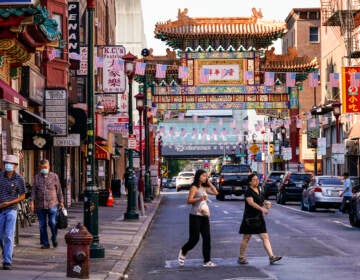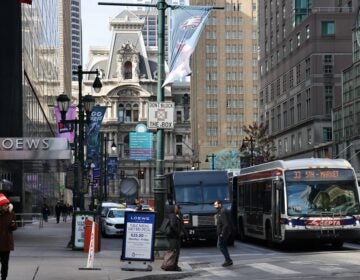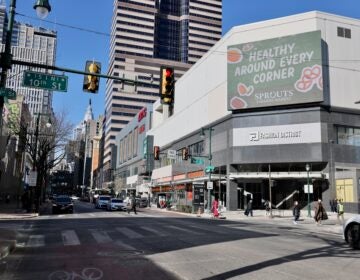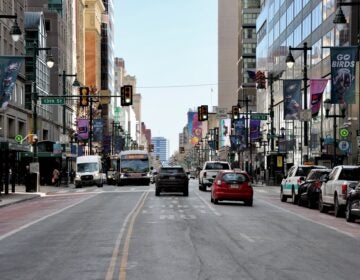A ‘significant opportunity’: Philly NAACP backs Sixers’ arena proposal for Center City
Tuesday’s announcement featured cheerleaders, a drill team and the franchise’s mascot.
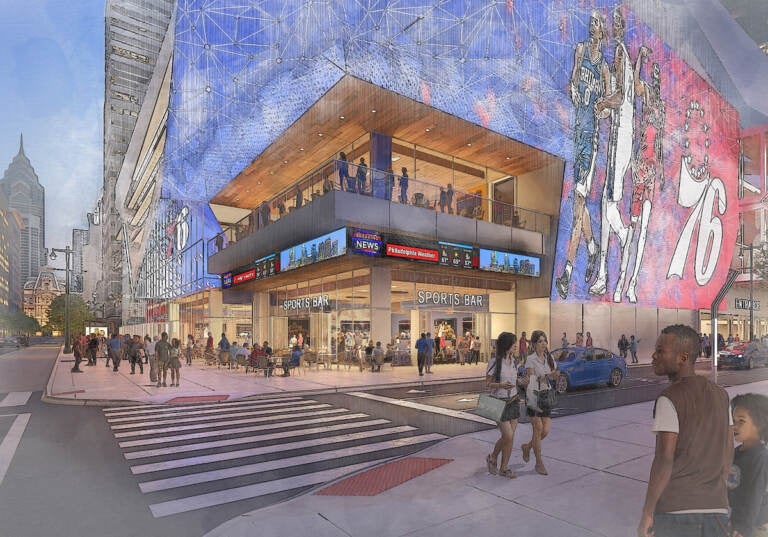
Architectural rendering of the proposed 76 Place. (Courtesy of Gensler and CBL Real Estate, LLC)
What you need to know
- The 76ers have proposed moving to a new $1.55 billion arena near Chinatown called “76 Place”
- The proposal has drawn swift condemnation, excitement, skepticism — and plenty of buzz
- Black Clergy of Philadelphia has endorsed the project, while a majority of Chinatown businesses and other community members have voiced their opposition
- Amid competing interests, the arena’s future remains uncertain
Have a question about Philly’s neighborhoods or the systems that shape them? PlanPhilly reporters want to hear from you! Ask us a question or send us a story idea you think we should cover.
The Philadelphia branch of the NAACP is supporting the Sixers’ proposal to build a $1.55 billion basketball arena in Center City, calling the project a “significant opportunity for individuals in underserved communities.”
The endorsement, codified in a memorandum of understanding, follows months of discussion between the civil rights organization and the Sixers. Tuesday’s announcement is part of a broader effort to execute a $50 million community benefits agreement with stakeholders from around the city. The team argues the project will not only generate new jobs and tax revenues but will help revitalize the blocks east of City Hall, a stretch that hasn’t thrived in decades despite millions in investment.
“Having a seat at the table allows this organization to advocate for equitable opportunities and inclusive growth. Our branch is even more committed to promoting greater access to new economic opportunities and growing wealth for our community,” said branch president Catherine Hicks during a festive news conference held in front of students of String Theory Schools.
The group’s support for the controversial project is rooted in commitments the Sixers have made to the Black community, as well as the economic benefits it believes a downtown arena would deliver for the entire city, including Chinatown, Hicks said.
The team has vowed to create a $2 million fund dedicated to preparing Black-owned businesses to be vendors, suppliers and concessionaires at 76 Place. The Sixers also aspire to have Black-owned businesses run 40% of the arena’s food, drink and concession operations.
“[76 Place] at Market East has the potential to generate a historic number of jobs, careers and other opportunities for the community. This presents a significant opportunity for individuals in underserved communities to access meaningful employment, economic stability and a pathway to success,” Hicks said.
The two-page MOU touts the project’s projected economic impact. It also states the Sixers and the NAACP “shall partner on opportunities as they align with each other’s mission and vision.” The list could include, tickets to branch-affiliated youth, participating in the branch’s community events and potentially offering space within the arena for the branch to hold community activities.
“From the start, we said that 76 Place should reflect the vibrancy and diversity of our city,” said 76 Devcorp chair David Adelman. “The NAACP has a very long history of fighting for that representation and opportunity to ensure that the Black community is considered and heard in a meaningful way that creates lasting change.”
To date, the Sixers have struggled to win over Chinatown, a community that is overwhelmingly opposed to the arena, which would sit feet from the neighborhood on Market Street. Residents and businesses in nearby Chinatown overwhelmingly oppose the project, calling it an “existential threat” to the ethnic enclave. They argue traffic congestion created by the development will destroy the historic neighborhood, which critics also say will suffer as a result of rising property values from new development in the area.
Residents in nearby Washington Square West have also come out against the project, as well as five groups representing constituents in Center City and South Philadelphia.
In a statement, Bishop Dwayne Royster, a member of the Save Chinatown Coalition, panned the Sixers’ pitch to the Black community, calling it “window dressing.”
“Don’t be fooled by the promises of jobs for African Americans in the city. We will not become a thriving city with part-time and seasonal arena jobs that perpetuate an ongoing African American underclass. That doesn’t help our people, but it does make team owners richer,” said Royster.
The Sixers still need zoning approval to move forward with construction on 76 Place, which the team hopes to open in 2031, the same year its lease is up at the Wells Fargo Center. That process is now expected to play out in the fall — sometime after the release of two highly-anticipated impact studies.
City Councilmember Mark Squilla, whose district includes the proposed arena site, has said the impact studies will inform his decision to introduce enabling legislation for the project. He has promised to share any legislation with community stakeholders at least 30 days before possible introduction.
The analyses were expected by the end of December. The city then announced the results would not be released until after the new year. Four months later, there is still no definitive timeline.
“The deadline keeps getting pushed back because they’re very complicated studies and issues,” said Martine Decamp, interim executive director of the Philadelphia Planning Commission, during a hearing in early April.
David Gould, the Sixers’ chief diversity and impact officer, said the community benefits agreement will come together after the studies are released.

Get daily updates from WHYY News!
WHYY is your source for fact-based, in-depth journalism and information. As a nonprofit organization, we rely on financial support from readers like you. Please give today.




